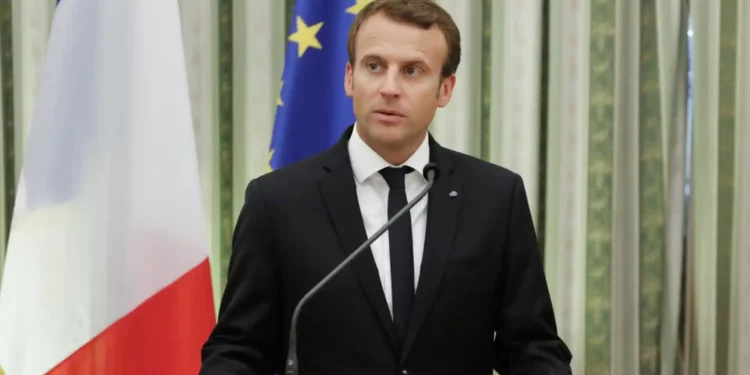The final results of the extremely risky snap election called a major risk for Macron just four weeks ago, are not anticipated until late Sunday or early Monday
The polling forecast on Sunday suggested that a coalition on the left that unexpectedly formed before France’s snap elections won the most parliamentary seats in the vote. According to the unexpected predictions, the far right came in third, and President Emmanuel Macron’s centrist alliance came in second.
France was plunged into a political and economic crisis due to the inability of any one combination to secure a majority. The final results of the extremely risky snap election, called a major risk for Macron just four weeks ago, are not anticipated until late Sunday or early Monday.
The war in Ukraine, international diplomacy, and the stability of the European economy will all be impacted by the early legislative elections in this nuclear-armed country.
PM Attal of France says to resign on Monday.
Weeks of political maneuvering to choose the prime minister and head of the National Assembly now lie ahead of France. Additionally, President Macron may have to lead the nation alongside a prime minister who disagrees with the majority of his domestic initiatives.
Following his party’s failure to secure a majority in parliamentary elections, French Prime Minister Gabriel Attal announced on Monday that he will tender his resignation to President Macron. However, he also stated that he was prepared to stay in office “as long as duty demands” if his resignation was rejected.
A cornerstone of the European Union and its second-largest economy is thrown into extreme uncertainty by the forecasts, which, if verified by official counts anticipated later Sunday or early Monday, might leave it unclear who would work with President Emmanuel Macron as prime minister to lead France.
There is little doubt that the timing of France’s political experimentation could not be worse: In less than three weeks, the Paris Olympics will begin, and while the world watches, the nation will be dealing with internal upheaval.
For centrist supporters of 46-year-old Macron, the legislative elections have been a complete disaster. After the far right gained significant support in French voting for the European elections, he shocked the country and many within his own administration by dissolving the National Assembly, the lower house of parliament.
Our victory has just been postponed, said Marine Le Pen of the French far right.
The far-right’s triumph in France, according to three-time presidential candidate Marine Le Pen, has only been delayed because initial predictions indicated it would be behind the center and left in legislative elections.
“The water level is rising. Le Pen, who is anticipated to run for president again in 2027, told the TF1 television broadcaster, “It did not rise high enough this time, but it continues to rise and, consequently, our victory has only been delayed.” She also refused to be “disappointed by a result where we double our number of members of parliament.”
Redirecting voters to the polls, according to President Macron, would offer France “clarification.” The president was taking a chance that, with the destiny of France in their hands, people would swing away from the extremes on the right and left and toward mainstream parties more in line with the center, which is where Macron got a large portion of the support that helped him win the presidency in 2017 and 2022. He believed that this would strengthen his presidency for the final three years of his term.
Millions of voters on both the left and right of France’s increasingly divisive political landscape, however, saw his unexpected decision as a chance to express their ire and potentially sideline Macron by putting him in a parliament that may now be predominately made up of lawmakers opposed to him and, in particular, his pro-business policies.
A hung parliament would be unheard of in modern France and would bring political unrest since no single bloc could secure the 289 members required for an absolute majority in the National Assembly, the more powerful of the country’s two legislative houses.
In contrast to other European nations that are more accustomed to coalition governments, there is no historical precedent in France for legislators from opposing political parties to join forces to form a majority.
The intense political division in France, particularly during this intense and brief campaign, will undoubtedly make coalition building more difficult. The election campaign was marked by antisemitism and racism, as well as Russian disinformation efforts.
Any majority that has been pieced together runs the risk of being brittle and susceptible to votes of no confidence that could bring it down.
Extended unrest may prompt his opponents to urge that President Macron should abort his final and second term. He cannot dissolve parliament again in the next 12 months due to the French Constitution unless he uses it as a means of perhaps providing France with more certainty.


















